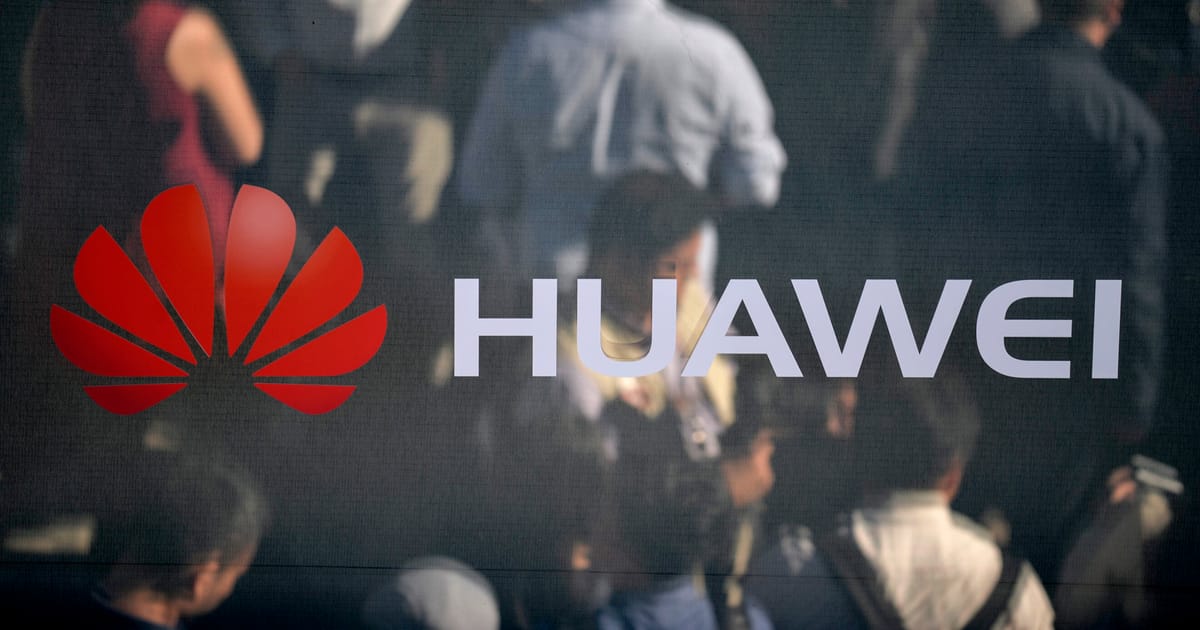[ad_1]
Press play to listen to this article
Voiced by artificial intelligence.
BERLIN — The latest freak-out over Chinese telecommunications equipment in Germany, which led to the announcement of a probe in March, has its origins in a little-known piece of Huawei technology that is supposed to control power consumption, POLITICO can reveal.
While much of the fear around Huawei in the West has focused on espionage and the risk of data leaking to Beijing, Germany’s latest investigation — and the intelligence that triggered it — point to another risk: the potential of sabotage through critical components that could collapse telecoms networks.
huawei,germany,germany china,japan’s bid to counter huawei,chinese telecom giant huawei,bid to counter huawei,huawei phone,china’s aid for tonga,huawei ban,tesla german factory,huawei mate x,huawei 5g,bitcoin price drop,life on a donut planet,folding phone,made in china,chang’e-4 china rover,rocket launch,china npc opening,tonga island nation,china space program,china vs usa military power 2021,china angry,russia china vs usa military power
In March, the interior ministry announced it was checking all components with security implications from two Chinese telecoms suppliers, Huawei and ZTE. The review was launched to identify technology “that could enable a state to exercise political power,” a high-ranking official from the interior ministry said at the time.
German lawmakers were briefed on the probe by security authorities in a classified parliamentary hearing at the German Bundestag’s digital committee in early April. The session was held by the German interior ministry and the federal intelligence service, the two lawmakers said. Germany’s cybersecurity agency was also present, one lawmaker added.
In the briefing, security officials told lawmakers that one tech component in particular triggered the ministry’s investigation, namely an energy management component from Huawei, two lawmakers present at the briefing who spoke under the condition of anonymity because of the classified nature of the information told POLITICO.
The revelations suggest security officials feared such a component could be used to disrupt telecoms operations or — in a worst case scenario — be exploited to bring down a network.
The announcement of the review in March marked a shift in Germany’s approach to Chinese telecoms equipment.
Over the past few years, the country has been slower than many of its European peers in drafting and enforcing 5G security measures to limit the risks of relying on Chinese equipment — a trend that chimed with Berlin’s dovish approach to trade relations with China. Berlin has previously been criticized over its stance by U.S. government officials as well as European security authorities, which have warned of the risks associated with Chinese telecoms equipment.
When asked to verify the information, the interior ministry said it would not comment on classified information as a matter of principle.
“We have not been informed about a risk related to an energy management component by any authority,” Patrick Berger, Huawei’s head of media affairs told POLITICO. “Cybersecurity and privacy protection are Huawei’s highest priority,” he added.
In its review, the German interior ministry is asking network operators to submit a list of all Chinese “security-relevant” components. The checks are expected to conclude in the coming months.
The review could lead to operators having to “rip and replace” components provided by Chinese suppliers in past years if they’re deemed too risky, but such drastic measures are unlikely and could trigger legal disputes by network operators, the main operators signaled earlier.

German authorities in recent months have taken a more critical approach to Chinese involvement in critical sectors, including by pushing back on a Chinese investment in the Hamburg port. The government also blocked a takeover of a chips plant late last year.
Renewed scrutiny of telecoms networks came after a report released last year found that Chinese suppliers had managed to secure large market share in the early, booming 5G rollout in the country.
[ad_2]
